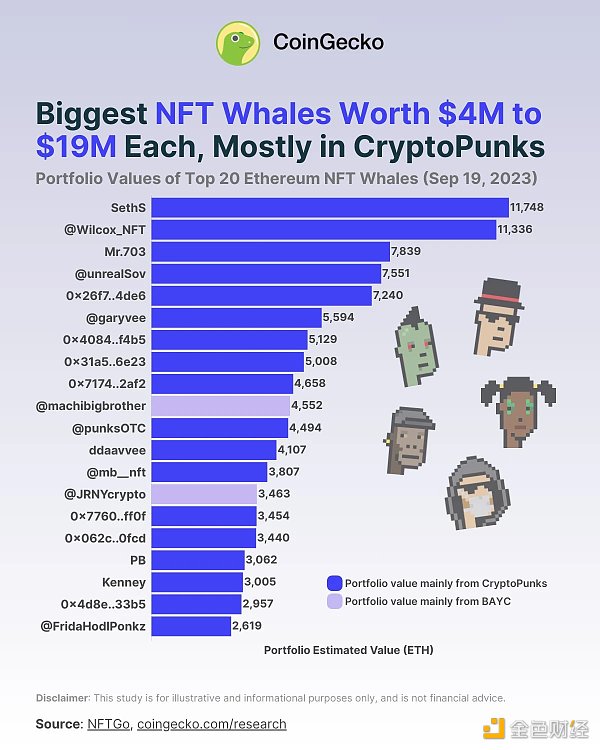Comment: What people need is "consensus" for outbreak data
Source: The Story of Kelvin, the original title "The Story of Kelvin: I have something to say about the epidemic data"
Author: Luo Kai
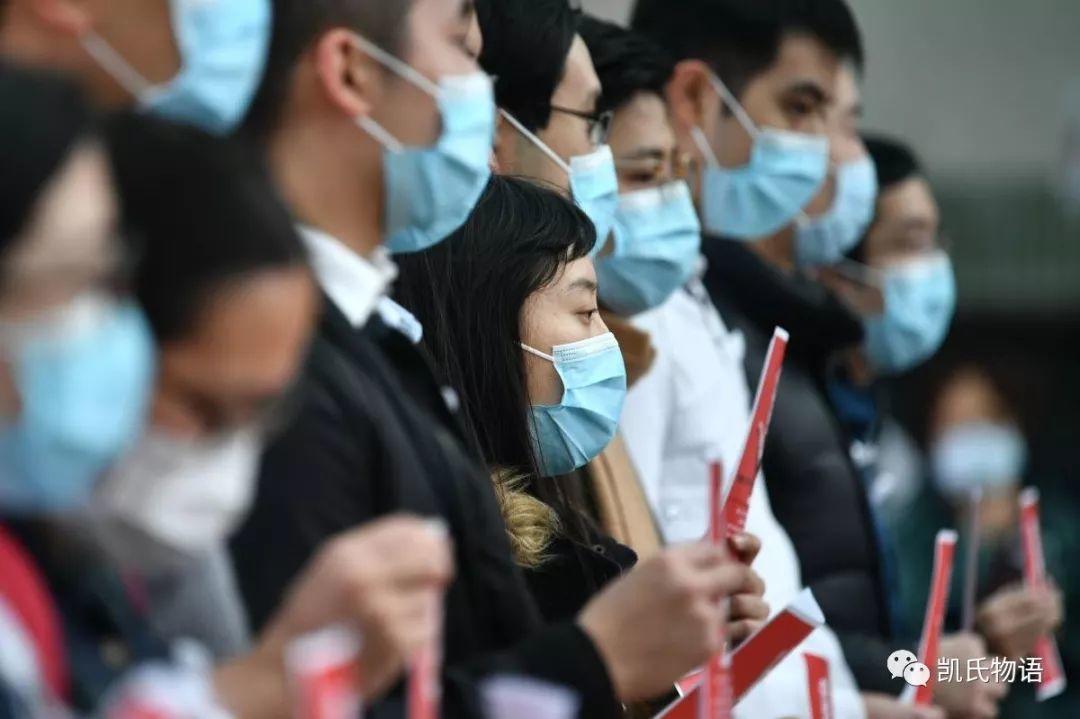
As of February 4, the number of new pneumonia diagnosed nationwide has exceeded 20,000, with suspected cases reaching 23,214, cured cases reaching 661, and death cases reaching 426.
- View | Industrial Blockchain 2.0 is a technology fusion upgrade
- Opinion | Will the alliance chain gradually disappear?
- Blockchain Weekly | Shanghai Supports Central Bank's Digital Currency Research Institute to Set Up Fintech Company in Shanghai
In the article "What will 2020 look like after the epidemic" two days ago, I mentioned that the potential death toll from new pneumonia is 30 million. Of course, today I believe this number will never appear, not even a fraction of this number. Because the Chinese government has made tremendous efforts, the Chinese people have made tremendous efforts. In the face of the disaster, the whole world is looking at a name called China.
Because of the epidemic, we have seen that various countries are blocking their borders and temporarily banning the entry of Chinese or foreigners who have stayed in China. From the United States, Britain, Singapore, Australia, to Vietnam, the Philippines and even North Korea, immigration has been suspended. Even Japan, which showed a positive attitude in this epidemic, was forced to suspend the entry of nationals of Hubei Province under pressure from domestic public opinion.
From my personal point of view, I understand these countries' initiatives very well. Because in the face of the epidemic, there are two very important messages before these governments:
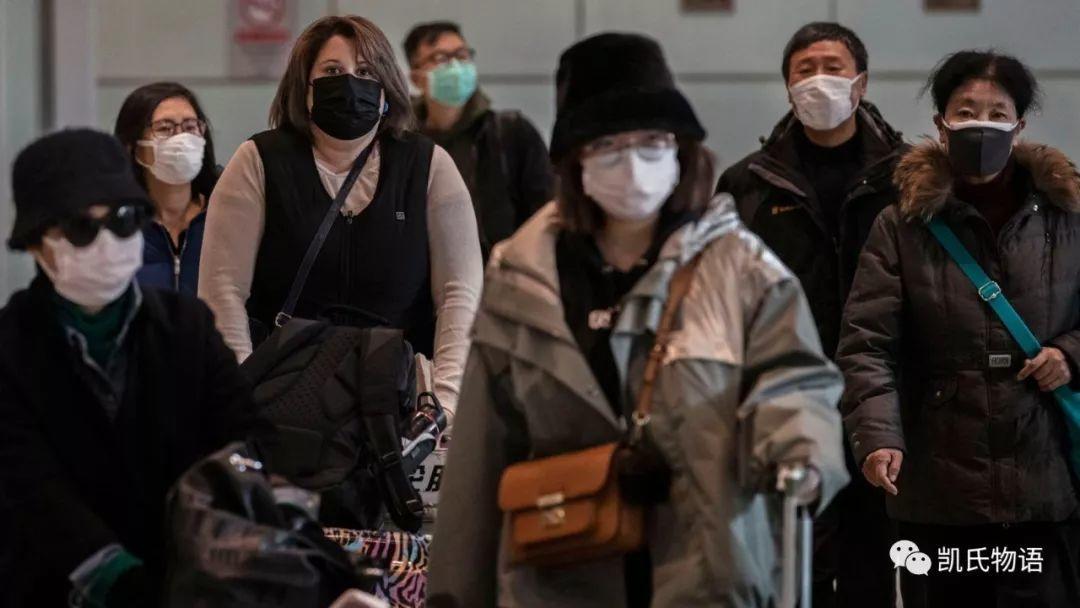
First, China has used its power to block the epidemic. Such a measure is unprecedented in any country. Based on such powerful measures, governments of various countries will also show panic and a series of chain reactions due to the asymmetry of information. I believe that high-level governments of various countries have held close talks and obtained a certain amount of data.
However, based on the Sino-US sweater battles in the past year, the Western media ’s war on China, and the foreign government ’s trust in the Chinese government will have a larger question mark. Then the Chinese government's action has become an information paradox. The disclosed data may have triggered mistrust of the data in other countries, and even triggered a stronger panic.
From the reaction of foreign people, we know whether this kind of thinking is valid. In the recent past, we frequently see that people living in foreign countries in China, including international students or overseas Chinese, have been harassed to varying degrees, even news of beatings and attacks. Panic has spread further in foreign countries. Based on the huge uncertainty of the economy itself and the long-standing misunderstanding of China, new pneumonia has found a venting outlet for foreign thugs or potential rioters.
Secondly, the infrastructure construction in foreign countries is far below the level of China. Once the country is opened and the epidemic enters the country, I believe no government has the ability to control it like China. This is the result of long-term institutional decisions. Enter the public life through the army to help solve the problem, comprehensively close the city, from the country to the villages and towns, issue orders layer by layer, and strictly implement it in every district of every city. These measures are impossible in any country other than China.

Today, facing the epidemic situation, we see that China is very peaceful on the whole. Faced with the disaster, the people showed great optimism to fight, even in the course of an earthquake in Sichuan. We still see the positive side of optimism. Although there have been temporary price hikes in some places, but after the spread of the Internet, the country quickly issued instructions and released information to a certain extent, which basically solved national problems within a day or two.
This is a typical example of China's tremendous progress in reform and opening up over the past four decades. If the source of the epidemic appears in any other country, large-scale riots and military suppression are the most likely scenarios. Even in developed countries like Europe and the United States, I think it will be no exception. Today, we know that WHO has made a positive contribution to the Chinese government. This is largely related to the sentiment of China as a whole. It is the tremendous calm shown by the Chinese people as a whole that shocked foreign governments.
As I mentioned in the previous article, the core issue facing the Chinese government in the future is how to change the existing image of political governance so as to form a positive interaction with the people and overseas people.
Today, because of the epidemic situation, we have seen more clearly that in addition to feelings about the economic development of China, overseas governments and overseas people have also expressed fears because of cultural barriers. Judging from the public opinion comments on a series of events in China by European and American media, it is difficult for foreign countries to form long-term prejudices to change in the short term.

It may take a long time, such as 5-10 years to change this existing impression. In the middle, there needs to be a large number of groups who have deep understanding of Eastern cultural connotations and understand Western expressions. Whether it is Chinese who have lived abroad for a long time in China or foreigners who have lived in China for a long time, they must pass the correct information to allow more overseas People understand all aspects of China today.
Targeting the national masses is another matter. Judging from the whole process of this epidemic, all the sacrifices and great efforts made by the government and people are highly commendable. However, the incidents of various types of local institutions and local governments that have burst out in the past few days have once again exposed some degree of governance defects to the public. For example, the Black Ten Conference, inaction and corruption caused public outrage; for example, the Hubei government's ambiguous attitude and lack of professional performance; it even fell into the "bureaucracy and academics, thesis and salvation" dispute, which was serious before the epidemic. Absent from Wuhan P4 Virus Research Institute.
No matter how difficult it is to rejuvenate the country, every time China experiences an ordeal, there will be a huge leap from quantitative change to qualitative change. New pneumonia may drive political governance reforms in the Chinese government.
There is also data related to the epidemic, which has raised some questions. Many friends argued with me in the background of the public account, thinking that the official state data should prevail. This is first and foremost a highly appreciated national collective consciousness. I am also very pleased that young people in China are highly united in their national consciousness in the face of major calamities and disasters.
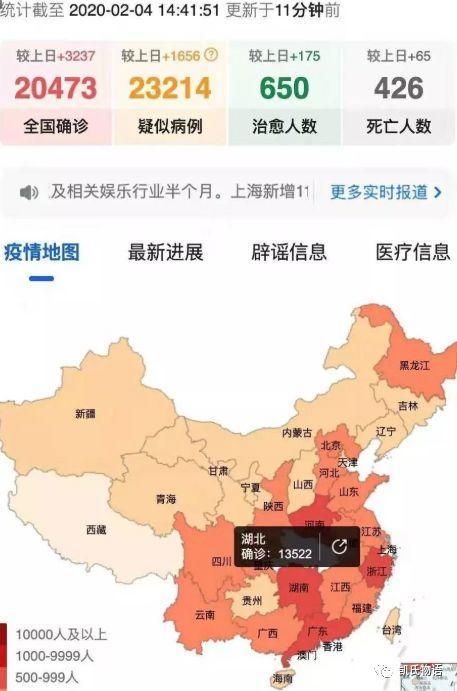
We must admit that the Chinese government's decisions in the face of unparalleled difficulties have completely surpassed the vast majority of national governments. If you do well, it doesn't mean you can't do better.
Today we sort out the data, not to question but to understand and transcend.
The University of Hong Kong School of Medicine published a mathematical model study in The Lancet on January 31 stating that it was estimated that there were 75,815 people infected in Wuhan on January 25. The basic infection rate R0 is 2.68, which means that the infection rate doubles every 6.4 days without intervention, while the Wuhan population is 19 million.
In its model, the population of Wuhan is incorrectly estimated. If calculated based on the resident plus floating population of 14 million, the data may have some discrepancies, but according to Harvard's epidemiologist Dr. Eric published on January 26, The R0 value of new pneumonia was 3.8. If calculated based on this basic rate of infection, Wuhan still infected more than 75,000 people on January 25.
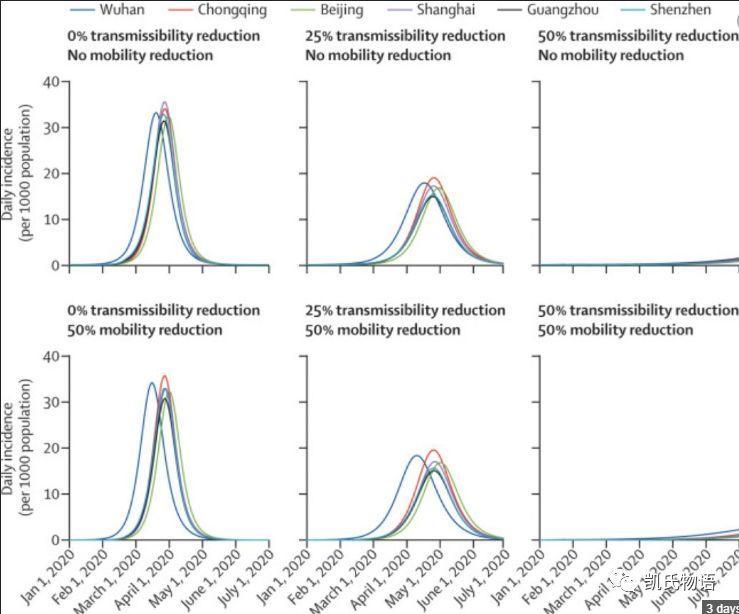
However, R0 is a changing number. In theory, through effective control, it will gradually decrease. For example, when SARS broke out, the R0 value was 2.9, and the final value dropped to 0.4. So is the figure of more than 75,000 infected people in Wuhan on January 25 credible?
Beginning on January 29, governments of all countries began to withdraw Chinese from China. Including the United States, Japan, South Korea, Canada, and a series of EU countries. From the perspective of the number of people infected in these countries, the average infection rate remains at 1.37%. However, there is another data worth thinking about here: that the number of people with a cold and fever is roughly 5.5% of the total evacuation population, of which about 10% were diagnosed, that is, 0.55% of the total population was diagnosed with a new type of pneumonia through a cold and fever. Nearly 0.88% of the evacuees were diagnosed with new pneumonia without any symptoms.
The ratio of diagnoses based on illness to those without symptoms was 4: 6. This means that a large number of people infected with new pneumonia are not actually included in the relevant data.
If the number of infected people in Wuhan is reversed based on this number, it will be found that more than 200,000 infected people have appeared in early February. Then suppose that it is calculated from R0 to 3.8 on January 25. Due to the strong intervention of the Chinese government and the cooperation of national unification, R0 was reduced to 2.68 on January 31. From every 4.6 days to every 6.4 days, the infected population fission doubled, then it can be basically concluded that on January 25, approximately 75 thousand people were infected in Wuhan.
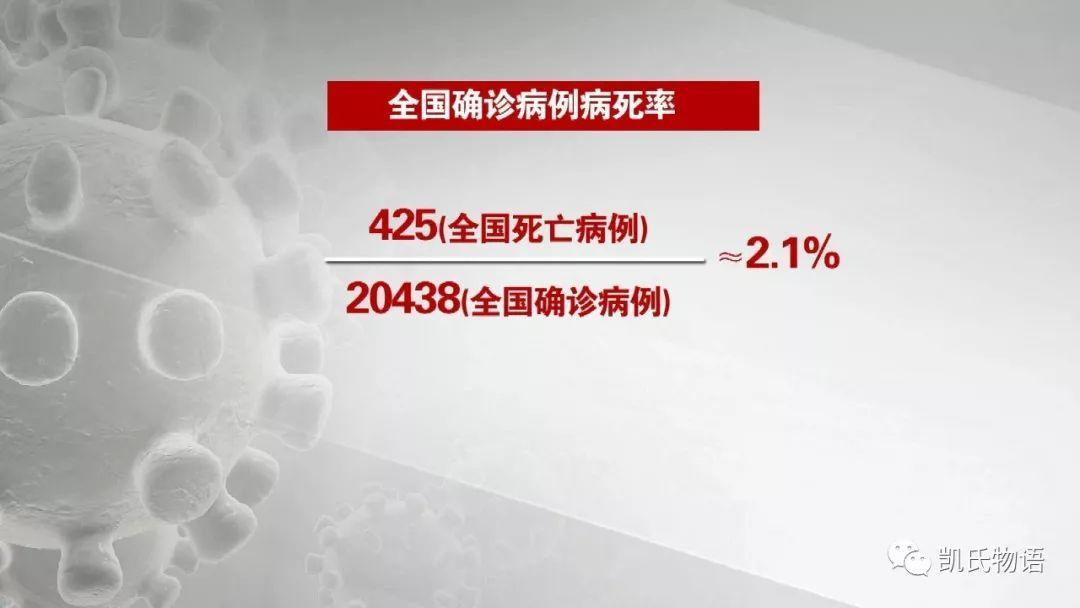
According to the latest data released by the National Health and Medical Commission, the fatality rate of new pneumonia is approximately 2.1%, which is far less than 10% of SARS that year, but it also means that the number of critically ill patients who are in urgent need of treatment in Wuhan today exceeds 4,000. people. Wuhan has completed and will soon complete the Vulcan Mountain Lei Shenshan Hospital, which can accommodate 2600 critically ill patients, while another 13 square-cabin hospitals opened at the same time are expected to accommodate 13,000 light patients. This may already cover the potential peak number of critically ill patients in Wuhan in the next few days.
What would happen if the disaster, like the Spanish flu of 1919, spread to all parts of the world in a short time? Is it 30 million deaths or $ 3 trillion in evaporation? You can only see the speed of the country's infrastructure in exchange for flesh and blood and the front-line fighters, who have won the battle at the cost of the potential loss of life. And never thought: China will stop the epidemic and save the world at the cost of incalculable economic losses.
Although the epidemic battle originated in China, it is not the responsibility of a country, but a war of all mankind. The sacrifices and efforts made by the government and the Chinese people today are not only for the safety of their own lives, but also to protect the people of the world. If these figures are true, if the information can be correctly expressed, will overseas people still be afraid of China and the Chinese people? If today the government can take the initiative to seize the commanding heights of public opinion at home and abroad, the meaning of the word China in the world will be redefined.
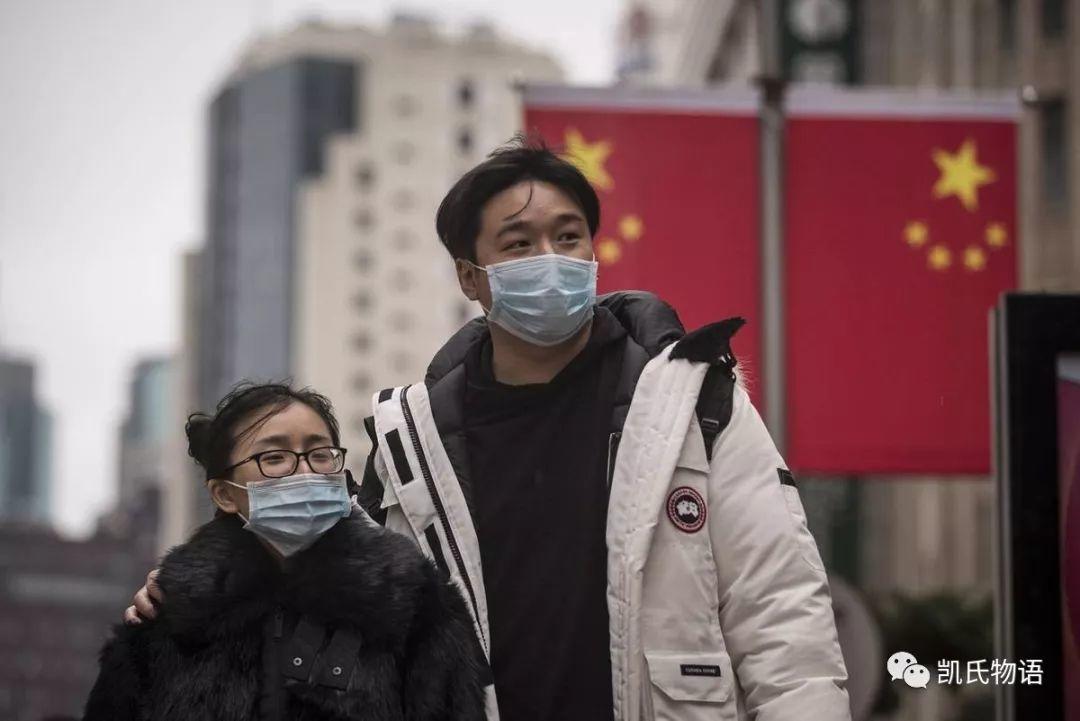
We are heroes and deserve to be as proud as heroes.
I can understand that as a dilemma for the government, the correct disclosure of information may cause greater panic, and concealment of information may cause the public to have more distrust. It is also very easy to receive snipers from conspirators at home and abroad, and even generate uncontrollable rumors. For a long time in the past, we did not have the prerequisites for public opinion at home and abroad, whether it is the infrastructure based on the globalized Internet or the differences in Eastern and Western ideologies.
But rumors stop at the wise. Who is the wise? It is open, transparent, and traceable information.
If the government can mobilize the enthusiasm of the people more widely today, it can better face the battle of the epidemic. Let everyone understand the epidemic situation, understand the data, read the information, fully mobilize the power of society, and believe in their own people, just like the Chinese people believe in the government. Turning danger into opportunity, this battle may completely change the world's understanding and attitude towards Chinese Confucian culture.

In the long history of national development, Chinese citizens have become accustomed to publishing information, processing data, and distributing data uniformly by the state, just like a huge private chain. We have extremely high efficiency, and our organizational ability exceeds any country and nation in the world. This is all thanks to the super-high-speed TPS that has evolved and evolved in the past five thousand years of our country, because we only have one node, which is 100% secure and efficient.
However, in the extremely complicated network public opinion environment that is generated today, one of the most efficient private chains in the world cannot immediately resolve all the emotions and unified cognition in the entire network. Of course, thanks to the world's leading Internet company in China today, China ’s BAT has stabilized the people ’s livelihood and livelihoods for the people throughout the battle. It is also because of the rapid Internet dissemination, which has solved the information asymmetry to a certain extent, so that the people can see To more lack of political governance that was previously unseen.
In the face of this epidemic, Chinese Internet giants have assumed more of a government node role, similar to the Alliance Chain. To a certain extent, it has become the medium between the Chinese people and the government. Of course, all kinds of big data we see today are generated based on user groups accumulated by various Internet companies. On the other hand, because the will of the national government is issued layer by layer, from the high level all the way to a certain district on a country's vast land. Formed a strong organizational role of a multi-level alliance chain, based on the offline form, completed a huge blockchain network with 1.4 billion people participating.
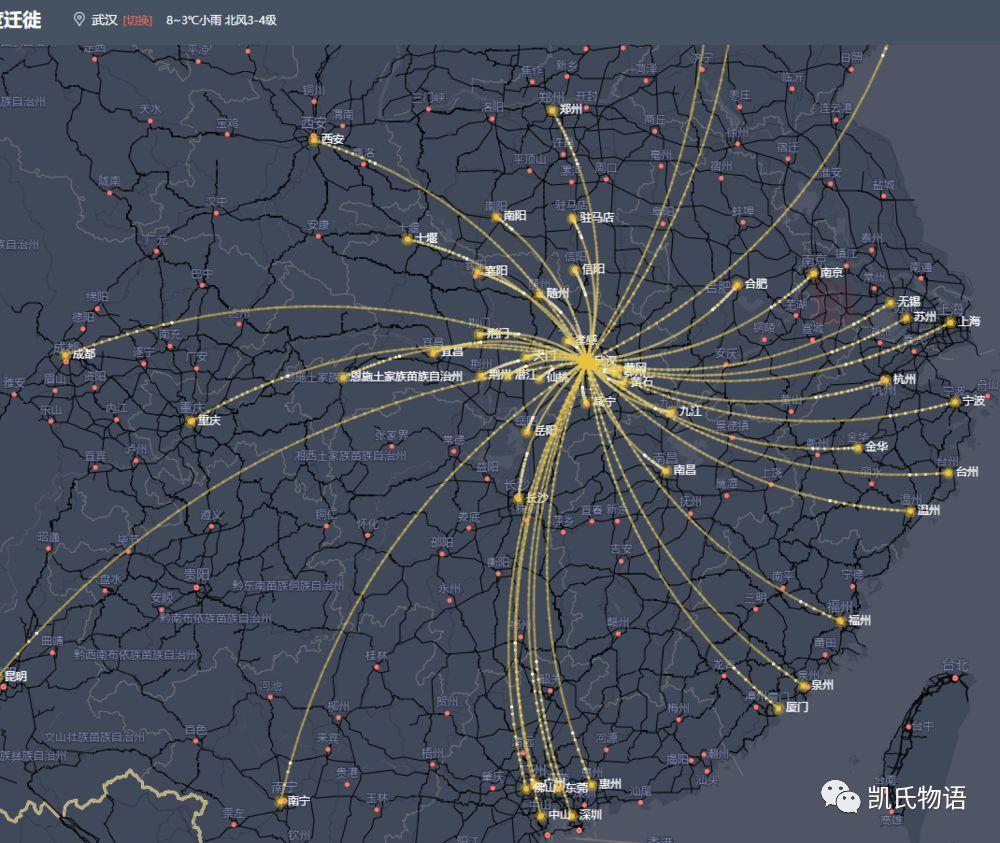
But let's think about it. For the people, do we really need official data or big data based on Internet giants? No, today we see both the calm and unified emotions on the Internet and the outrageous anger caused by unreasonable betrayal. There are both helplessness in controlling the information layers of the Internet giants, and confusion about the inability to distinguish false information.
What the people need is actually "consensus data".
If today's people can see that the relevant information and data of the Black Cross are truly monitored and confirmed by all the people's nodes, it is possible that the contributions of the Chinese people to the epidemic will grow explosively at a geometric level. If today there is a mechanism that allows the public to observe the latest government developments, the speed of responding to incidents, and the governance of public affairs, there may not be fleeing groups before they close the city.
The masses did not flee in order to flee, but because of the huge distrust of the local government's ability to govern. Why is there distrust? Because their bottom level has lost consensus on local governments. The public will have doubts about the relevant data exposed by the government. Even if they don't say it, even if they are defended on the Internet due to the influence of national collective consciousness, the bottom of the heart will ask a question mark: how real is this data?

Letting the data restore the truth will not weaken the government's image, nor will it cause the government to lose its ability to control and control. Instead, it can effectively motivate the public. If the public can better become one of them and participate in the entire process of political governance, whether it is supervision or confirmation of power, or traceability or anti-counterfeiting, it will bring about a leapfrog evolution of the entire country's political governance pattern.
Today we talk, what is consensus? Consensus means people's hearts.
Let the broad masses of China form this unprecedented public chain in the world, let various types of corporate giants become nodes in it; let local governments and related institutions become alliance chains formed based on the public chain of the people, and let these alliance chains be based on national political parties This private chain forms a unified and effective security governance structure. Politics is the superstructure of the economy. On the basis of the country, the party and government are united, vigorously developing the economy, and the country is rich and the people strong, isn't it our long-standing unified ideology?
Many people may shake their heads. During the past decades of reform and opening up, the government crossed the river by touching stones. In the past 40 years, we have concentrated all our energies on the huge leap in the economy. In all fairness, the country has not only become rich and strong, but has also helped the general public to get rid of poverty and become rich.
But today's new pneumonia sounds the alarm once again. This is a stall for all Chinese people. If we can have more consensus data, I believe the public's consensus on the government will be stronger. Compared to SARS in 2003, the government has made too much progress, but we still have a lot of room for improvement in everything that may happen in the future.
Seon lost his horse and knew it was a blessing. Moving from a controlled government to a consensus government will be a long-term battle for high-level nations.
It can be expected that the technical iteration of the world from the Internet type to the blockchain type will effectively help the government to transform.
If Bitcoin can be created from scratch, in just ten years, based on blockchain technology, from Satoshi Nakamoto to 40 million people around the world today, a consensus has been formed, a highly unified ideology, and even a belief. In the history of China over the past 5000 years, from a million people to 1.4 billion today, China has gradually reached a consensus on communism over the past 70 years. From the elderly to the children, a highly unified ideology for the country has emerged. The Chinese Faith is never lacking, what is missing is "consensus data".
I believe that on the basis of "consensus data", the people will have a new belief in the government, and this belief will be the real Chinese dream-open governance, consultation and mutual benefit. At this time, this belief not only belongs to the Chinese people, it can also belong to the people of the world.
I have confidence in China.
PS: The Titan map has updated the real-time global epidemic data on the chain. What I wanted to do was go further and open global users to directly participate in contributing local epidemic-related data. However, based on this "consensus data", there may be a "large gap" with official data, so we will postpone the discussion later. Later, it will quickly iterate and refine the real-time data on the global chain to the community based on positioning. I hope it can help everyone.
Under the epidemic, we have only one name, China.
We will continue to update Blocking; if you have any questions or suggestions, please contact us!
Was this article helpful?
93 out of 132 found this helpful
Related articles
- Initially in 2020, 223 questionnaires from the community will tell you the development direction of the public chain
- Speculative POC: New consensus or speculation?
- China's Blockchain Technology Standardization: Exploration, Practice and Journey Beginning in 2016
- Academician Shen Changxiang: Solving blockchain security can only be based on trusted computing 3.0
- One article understands the life and death of blockchain. How many projects have stopped in 2019?
- Introduction to Blockchain | How to clarify the blockchain with people of all ages, 4 small stories get in an instant
- Survey of Blockchain Application of Electronic Bills




